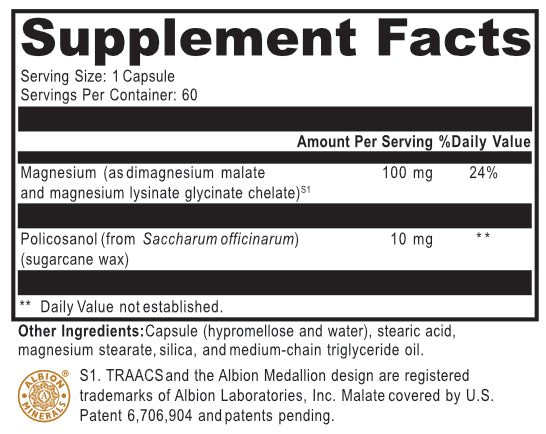Cholesterol-X — Natural Cardiovascular & Cholesterol Support
Cholesterol-X delivers a powerful blend of policosanol and magnesium amino acid chelate to support healthy blood lipid levels and overall heart function. Policosanol, derived from sugar cane, has been extensively researched for its ability to balance cholesterol and triglycerides naturally, while magnesium supports vascular tone, healthy blood pressure, and muscle relaxation. Together, they create a comprehensive approach to protecting your arteries, optimizing circulation, and promoting long-term cardiovascular health.
Key Benefits:
-
Supports healthy cholesterol and triglyceride levels
-
Protects arterial walls from oxidative damage
-
Promotes healthy blood flow and platelet function
-
Provides magnesium to support nerve, muscle, and heart function
-
Natural alternative to prescription cholesterol medications
-
Highly bioavailable formula for maximum absorption
Why Cholesterol-X?
Policosanol offers clinically validated cholesterol support without the side effects of common statins, while magnesium plays a critical role in maintaining vascular flexibility and cardiovascular performance. Cholesterol-X combines these two key ingredients into one easy-to-take formula, giving your heart the natural support it needs to thrive.



